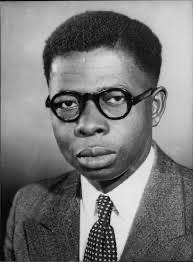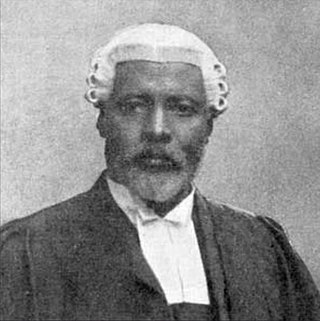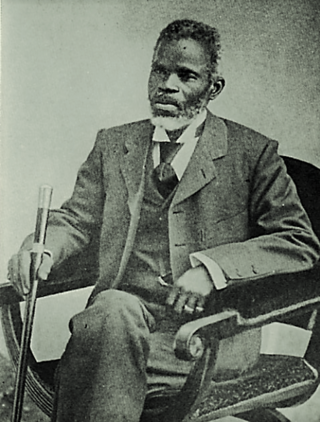 |
|---|
| Constitution |
General elections were held in Gold Coast in August 1927, [1] the first direct elections in the territory.
 |
|---|
| Constitution |
General elections were held in Gold Coast in August 1927, [1] the first direct elections in the territory.
The Guggisberg constitution was promulgated in May 1925, and provided for a 30-member Legislative Council with 16 official members and 14 unofficial members. [2] [3] Of the 14 unofficial members, three were Europeans appointed by the Governor to represent banking, mercantile and shipping interests, and two were Europeans elected by the Chamber of Commerce and Chamber of Mines. The remaining nine unofficial members were Africans, six of which were elected by the Provincial Councils (three by the Eastern Province Council, two by the Central Province Council and one by the Western Province Council) and three members representing the three municipalities of Accra, Cape Coast and Sekondi. [2] Western Province Council refused to elect its member, who was substituted by Nana Ofori Atta from the Eastern Province by the Governor. [4]
In 1927 the constitution was amended to allow for the three municipal representatives to be directly elected. [5] However, the franchise was severely limited, with only 1,816 people registered to vote in Accra from a population of 40,000, and 672 in Sekondi (less than 2% of the town's population). [6] [7] [8]
Having initially been opposed to the limited electoral representation, moderate African leaders agreed to participate in the elections following a meeting between the Governor and J. E. Casely Hayford, F. V. Nanka-Bruce and John Glover Addo. However, Kobina Sekyi and the Cape Coast branch of the Gold Coast Aborigines' Rights Protection Society (ARPS) continued to refuse to participate. [9] Although Casely Hayford attempted to have Henry van Hien nominated as a candidate in Cape Coast, this was opposed by the local Omanhene and the ARPS, and no candidate was forthcoming. [10]
Prior to the elections, Casely Hayford attempted to form organisations to support himself and his followers. [11] In Accra, the contest was effectively between the National Congress of British West Africa and the ARPS. [11] Several former members of Congress formed the Accra Ratepayers Association in June 1927 with Glover Addo as their candidate. [11] From the ARPS side, A. W. Kojo Thompson (who had been appointed to the Legislative Council in 1926) [12] ran as the Mambii Party candidate, supported by the Mantsemei. [13] However, Thompson's support was weakened by the breakaway Asere Kowulu Non-Party Society, which nominated K. Quartey-Papafio as a protest by the Asere people against Kojo Thompson's selection. [14] Although Quartey-Papafio was not a serious contender in the election, his main aim was to take votes from Kojo Thompson. [15] Neither major candidate had a manifesto, [16] with the campaign instead focusing on their character. [15] Ratepayers member Nanka-Bruce used his newspaper The Gold Coast Independent to denounce Thompson and the Mambii Party. [16]
In Sekondi the Sekondi Municipal Electors Association was formed in June to discuss politics and educate voters. [10] [17] It proposed five candidates, [17] but only two opted to contest the elections – Casely Hayford and George James Christian, a barrister who had immigrated from the West Indies. The main campaign issues were the candidates' political experience, their support from Europeans, and Christian's nationality. [18] Christian used the campaign slogan 'Christian in name, sympathy and attitude. [18]
In Accra, Glover Addo was elected with 380 votes, defeating Kojo Thompson (238 votes) and Quartey-Papafio (147 votes); 765 of the 1,816 registered voters participated. [7] In Sekondi, Casely Hayford easily defeated Christian by 146 votes to 25. [8]
When elections were eventually held in Cape Coast in 1928, Kobina Arku Korsah of the Ratepayers Association was returned unopposed. [19] The Omahene and Sekyi filed a petition against the election, claiming it was not valid without his support. However, the judge ruled that the case "should never have been brought to this court". [20]
Casely Hayford died in 1930. [21] In the subsequent by-election, Christian defeated Roland Crowther Nicol by 90 votes to 57. [22]

Mfantsipim is an all-boys boarding secondary school in Cape Coast, Ghana, established by the Methodist Church in 1876 to foster intellectual, moral, and spiritual growth on the then Gold Coast. Its founding name was Wesleyan High School and the first headmaster was James Picot, a French scholar, who was only 18 years old on his appointment.

Ga District is a former district that was located in Greater Accra Region, Ghana. Originally created as an ordinary district assembly in 1988. However in 2004, it was split off into two new districts: Ga West District and Ga East District. The district assembly was located in the western part of Greater Accra Region and had Amasaman as its capital town.

Joseph Ephraim Casely Hayford,, also known as Ekra-Agyeman, was a prominent Fante Gold Coast journalist, editor, author, lawyer, educator, and politician who supported pan-African nationalism. His 1911 novel Ethiopia Unbound is one of the earliest novels published in English by an African.

Ako Adjei, was a Ghanaian statesman, politician, lawyer and journalist. He was a member of the United Gold Coast Convention and one of six leaders who were detained during Ghana's struggle for political independence from Britain, a group famously called The Big Six. Adjei became a member of parliament as a Convention People's Party candidate in 1954 and held ministerial offices until 1962 when as Minister for Foreign Affairs he was wrongfully detained for the Kulungugu bomb attack.
Frederick Victor Nanka-Bruce was a physician, journalist and politician in the Gold Coast. He was the third African to practise orthodox medicine in the colony, after Benjamin Quartey-Papafio and Ernest James Hayford.

Benjamin William Quarteyquaye Quartey-Papafio, was a physician pioneer and politician on the Gold Coast - the first Ghanaian to obtain the medical degree (M.D) and the first to practise as an orthodox-trained physician.

Ernest James Hayford, was a physician and lawyer in the Gold Coast. He was the second African in the Gold Coast to become an orthodox medical doctor after Benjamin Quartey-Papafio.

Beattie Casely-Hayford was a Ghanaian engineer. He was the first director of the Ghana Arts Council, a co-founder of the Ghana National Dance Ensemble, and a director of the Ghana Broadcasting Corporation (GBC).

General elections were held in the Gold Coast in June 1946. Constitutional amendments on 29 March 1946 enabled the colony to be the first in Africa to have a majority of black members in its legislature; of the Legislative Council's 32 members, 21 were black, including all 18 elected members. The first meeting of the Legislative Council was on 23 July 1946.

Archibald "Archie" Casely-Hayford was a British-trained Ghanaian barrister and politician, who was involved in nationalist politics in the former Gold Coast. Having joined the Convention People's Party (CPP), in 1951 he was elected Municipal Member for Kumasi and was appointed by Kwame Nkrumah Minister of Agriculture and Natural Resources in the government of the First Republic. When Nkrumah declared Ghana's Independence on 6 March 1957, he was photographed on the podium flanked by Casely-Hayford, together with Kojo Botsio, Komla Agbeli Gbedemah, Nathaniel Azarco Welbeck and Krobo Edusei.

Jacob Kwaw Wilson Sey, also known as Kwaa Bonyi, was a colonial era Fante artisan, farmer, philanthropist, nationalist and the first recorded indigenous multi-millionaire on the Gold Coast. He played a major role in the Aborigines' Rights Protection Society (ARPS), founded to oppose the 1896 Crown Lands Bill and the 1897 Lands Bill that threatened the traditional land tenure system and stipulated that all unused lands be controlled by the British colonial government. The society was the 19th-century precursor that laid the foundation for the mid-20th-century "ideological warfare" pushed by the Gold Coast intelligentsia and the independence movement. Some academic scholars regard Sey as the "first real architect and financier towards Ghana's independence" and the ARPS as "the first attempt to institutionalize nationalist sentiment in the then Gold Coast."
The National Democratic Party (NDP) was a right-wing political party active in the Gold Coast in the early 1950s.
John van der Puije was a Gold Coast merchant, newspaper publisher, traditional ruler and politician. Between 1894 and 1904, he was appointed a member of the Legislative Council. He was also instrumental in the re-introduction of the Anglican Communion and English Freemasonry to the colony. He also lobbied the British colonial government to have greater African representation in the civil service in the late nineteenth century.

General elections were held in Gold Coast in 1931.

General elections were held in Gold Coast in 1935.